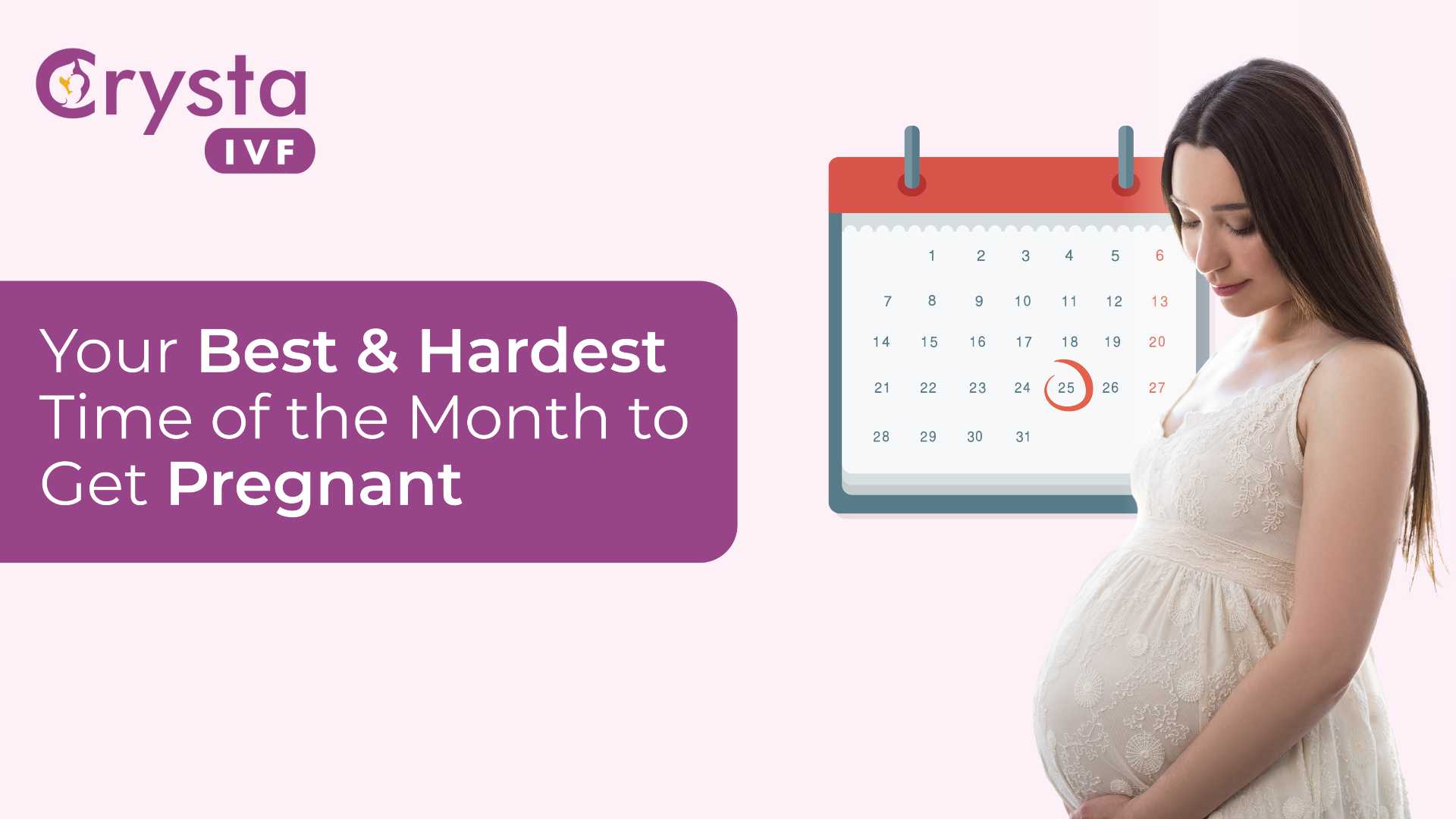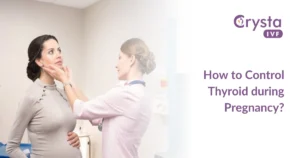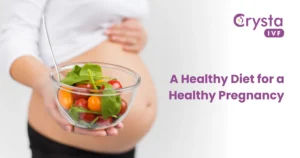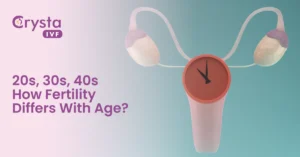Conceiving is a complex process and needs many factors to line up just right. When deciding the best time to get pregnant, a lot comes down to timing. You have a short window each month to conceive, and nature provides the perfect timing for this.
Understanding your body’s natural rhythms can increase your chances of conceiving. Although you can technically get pregnant any day of the month, you are more likely to be successful during specific times. Working with your body’s natural reproductive cycles can help you better understand your fertility and maximize your chances of getting pregnant.
So, let’s understand what your best days of making a baby are and what essential pregnancy planning should be to check if you’re ready to conceive.
What Is The Best Time To Get Pregnant?
If you’re hoping to conceive, you may be wondering when is the best time to get pregnant. The short answer is that the best time to try for a baby is around ovulation.
Ovulation occurs approximately two weeks before your next period when the egg is released from the ovary and can be fertilized by sperm. The average woman has a 28-day cycle, so ovulation usually occurs around day 14. However, it can vary from woman to woman and cycle to cycle.
Read in Hindi – Ovulation Meaning in Hindi
To increase your chances of getting pregnant, have timed intercourse during the three days leading up to and including ovulation. You can track your ovulation using a fertility tracker or calendar or pay attention to changes in your body throughout the month.
Is Pregnancy Possible At Any Time of the Month?
If you have a regular 28-day cycle, ovulation will occur around day 14, when you are most fertile and have the highest chance of conceiving. Therefore, if you are hoping to get pregnant, then this is the best time to get pregnant after your periods.
Every woman is different, and many factors can affect her fertility. And once you’ve ovulated, the egg will only survive for up to 24 hours if unfertilized with the sperm.
Here is the process of conceiving in a 28-day menstrual cycle:
- Day 1: First day of your period.
- Around day 14: Ovulation occurs.
- Within 24 hours of ovulation: Fertilization happens (egg & sperm combine)
- About one week after fertilization: Implantation occurs when the developed embryo attaches itself to the uterus wall.
- Around day 21: If the egg & sperm are fertilized, and implantation happens during the menstrual cycle, it marks the beginning of pregnancy.
Conception With In Vitro Fertilization (IVF)
Couples unable to conceive naturally because of certain medical conditions often turn to assisted reproduction, like in vitro fertilization (IVF), to facilitate conceiving. The process of conception is still the same; the egg must combine with sperm to create an embryo for implantation.
However, IVF fertilizes eggs with sperm outside of the body in a laboratory. The IVF process usually involves taking medication or undergoing surgery to stimulate ovulation or the release of an egg.
Once the egg has matured, it is retrieved and fertilized with the sperm of the patient’s partner in the lab. The prepared embryo is then placed back into the uterus for implantation.
How To Track Your Most Fertile Days?
Your body provides a number of clues about when you will ovulate. However, you may notice no significant changes. But you must look out for the following:
Basal body temperature
Basal temperature is your body’s temperature when you wake up in the morning or when you are completely at rest. If ovulation occurs, it may cause a slight increase in basal body temperature. Tracking basal body temperature on a daily basis will determine the days of the month you’re most fertile.
Get an ovulation predictor kit (OPK)
Ovulation predictor kits (OPK) help to determine the level of luteinizing hormone (LH) in your body. Before you ovulate (24-48 hours), your body triggers reproductive hormones such as LH, and the ovulation predictor kit detects these surges. Generally, there are two types of OPKs – Ovulation test strips & Digital ovulation tests.
Changes in vaginal secretions
You should also keep an eye on your vaginal discharge. Right before ovulation, your cervical mucus may be slippery, clear, stretchy, egg-white, and sperm-friendly. This is the time you are most likely to conceive. You should see your doctor if you have any abnormal discharge.
Use apps or devices
Some apps and wearables may help you identify your fertile days by keeping a calendar. As ovulation generally occurs 12 to 15 days before the menstrual cycle ends, keeping track of it will alert you when you’re most likely to conceive or when is the best time to get pregnant. However, this method may not be accurate for some women, especially if their menstrual cycle varies.
Do Irregular Periods Make It Difficult To Get Pregnant?
Ovulation dysfunction (irregular periods) is among the significant causes of fertility issues among women of reproductive age. If the menstrual periods are happening more frequently (less than 21 days) or if it occurs less frequently (more than 35 days), then both are considered abnormal. Irregular periods are often caused by conditions such as polycystic ovarian syndrome (PCOS) or a thyroid disorder.
While some women can still conceive even after irregular periods as long as ovulation occurs, most fertility days might be hard to predict.
If you’re experiencing irregular periods, heavy periods, or bleeding between periods, it might signify infertility that needs medical intervention. In the case where there is a severe case of ovulation disorder causing infertility, you might be recommended advanced infertility treatments like Intrauterine insemination (IUI) or In Vitro Fertilization (IVF).
What Is The Ideal Age To Get Pregnant?
A woman is at her peak of fertility in her 20s. The chances of conceiving are also high. Though it doesn’t mean you can’t get pregnant in your 30s, there are still plenty of chances. But it is essential to understand that the fertility window shrinks as the woman ages, especially after 40.
Every woman is born with a finite number of eggs in her ovaries, but as she grows older, the quality and quantity of eggs decline. If the egg is of poor quality or is less in number, then you might need assisted reproduction along with donor eggs to conceive.
Read More: Best Age to Get Pregnant
To Wrap Things Up
Having a baby is all about timing. You have a concise window each month to conceive, and nature dictates that. To increase your chances of getting pregnant after periods, it’s best to work with your body’s natural reproductive rhythm.
Doing this makes you more likely to get pregnant and have the good news you’re expecting. Also, if you have any concerns or questions about trying for a baby, be sure to speak with your doctor or healthcare provider for more guidance.
Crysta IVF is a renowned name in fertility and reproductive healthcare services. Parenthood is a journey that should be celebrated. Therefore, fertility experts at Crysta IVF – the best IVF center in India, are here to help your dreams of parenthood become a reality.
From personalized counseling and expert medical procedures to dedicated support throughout pregnancy and beyond, we’re here every step of the way.




